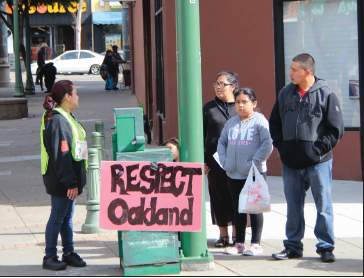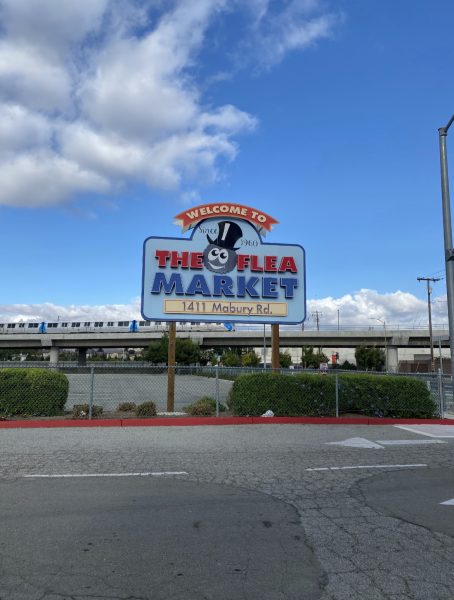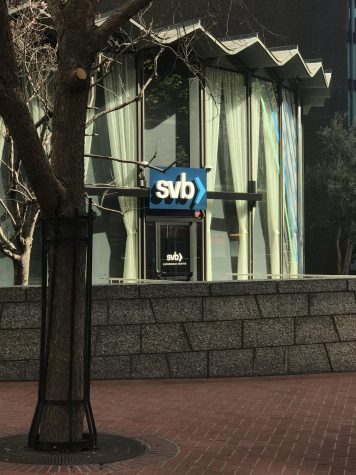Oakland workshop informs community of rights
March 15, 2017
Local organizations hosted a “Know Your Rights” workshop at the Fruitvale San Antonio Senior Center in Oakland on Saturday to inform their high minority population on what to do if U.S. Immigration and Customs Enforcement or ICE, show up at work, home or other places where they convene.
There were over 31 hosts which included politicians, charities and labor federations. About 250 people attended the event in the first of two sessions at 10 a.m., according to Josie Camacho, executive secretary-treasurer for the Alameda Labor Council.
“Fear has been instilled into the community, children are very scared and we keep seeing families being separated,” attendee Rosa Margarita Guerra said. “But knowing our rights makes me feel more calm and at peace.”
Hispanics and Latinos are the second largest minority — African Americans being the first — in the city of Oakland, according the 2010 U.S. Census Bureau. The city’s population is 26.7 percent foreign born, and there are about 11 million undocumented immigrants in the United States, NPR reported last week.
“We’re going to stand with our immigrants and refugees because this is our home,” Camacho said. “Because of Trump’s mean comments people are fearful. We are about building strength and unity.”
Donald Trump ran his presidential campaign with a strong anti-immigration policy stance. On Jan. 25, he signed executive orders to begin construction on a border wall between Mexico and the U.S., and there have been ICE raids across the country.
These raids have resulted in the removal of undocumented people with 75 percent having a criminal record, as reported by the Department of Homeland Security. During Obama’s last year of administration, 99.3 percent of removals were crime-related as reported by ICE.
Deferred Action for Childhood Arrivals is an immigration policy that the Obama administration established in June 2012. It allows undocumented students that entered the U.S. as a child before 2007 to obtain a work permit and be deferred from deportation, but must be renewed every two years. “DACA is not a protected legal status, but active DACA recipients are typically a lower level of enforcement priority,” ICE tweeted a week ago.
An immigration lawyer present at the event reminded people their right to remain silent. If ICE were to show up at their home, they are not obligated to open their door unless ICE officials have a proper warrant.
A proper warrant would have three things: the correct and current address of the person they’re looking for, the correct name and must be signed by a judge.
People should be prepared and have a plan. They advised people to renew their DACA, speak to a lawyer if wanting to apply to DACA and informing a trusted person where important documents are kept in case of arrest.
“We need to learn to not have fear and defend our rights but also get information from professionals, not always the sister of the aunt of the neighbor,” Guerra said. “In Mexico I was taught to work for what I have. Forty years ago I came in the trunk of a car and now my daughter works for the school district. I am very grateful to this country.”
Service Employment International Union 2015 represents half a million home-care workers and is the largest union with immigrants and women. One of their main focuses is obtaining immigration reform. “Others have become less afraid to share their stories,” Arnulfo De La Cruz, a member of the SEIU 2015 said.
He believes we must fight back against this “racist system that only wants to use us for their benefit” and that the elections have consequences. That is why their organization encourages people to become citizens and vote when time comes.
Yet the fear was evident. It was asked from people in the workshop that no pictures or recordings to be taken because attendees did not want them ending up on social media. A woman going up for the second session asked first what the workshop was about and whether it was safe to go up.
















